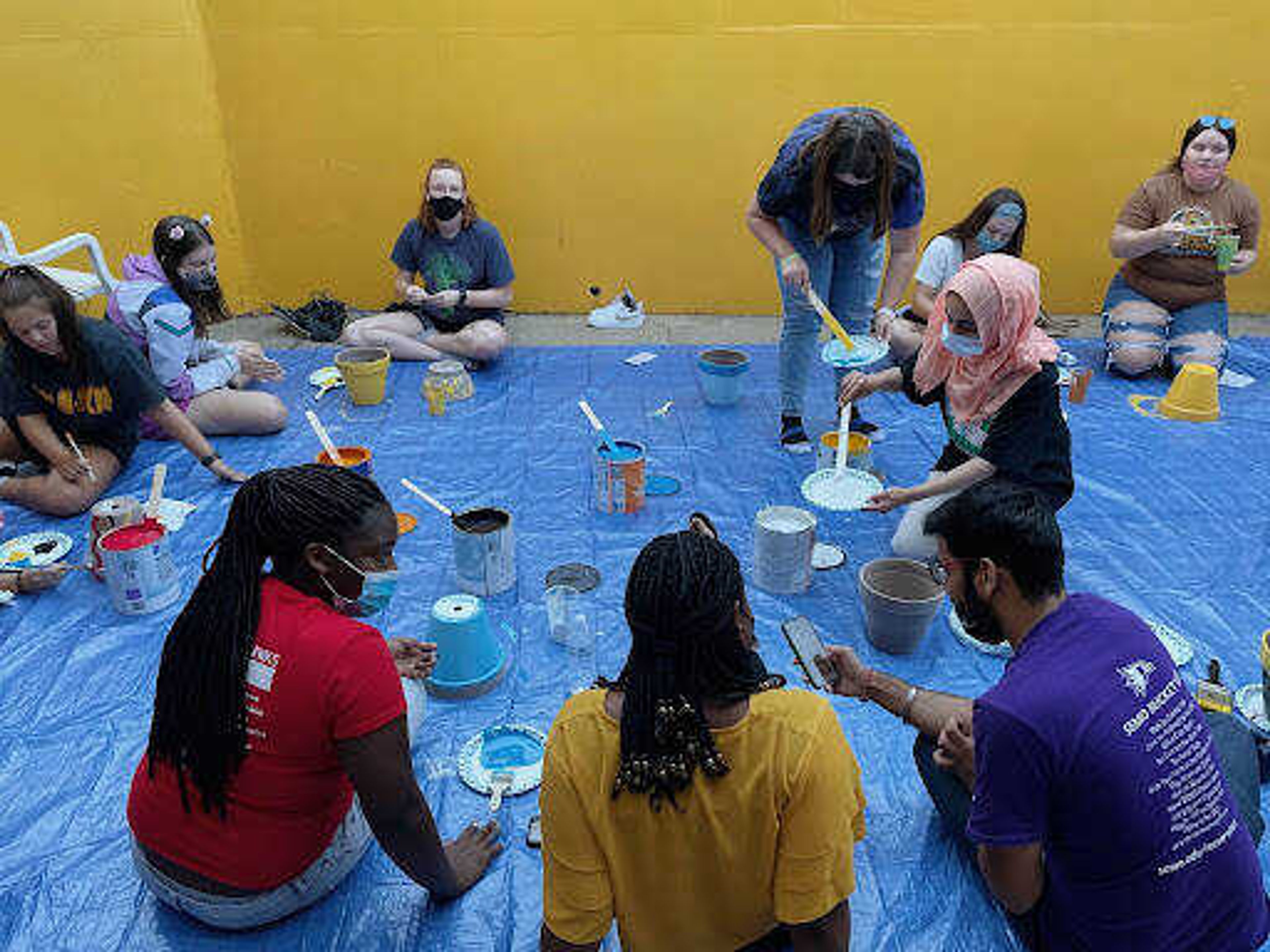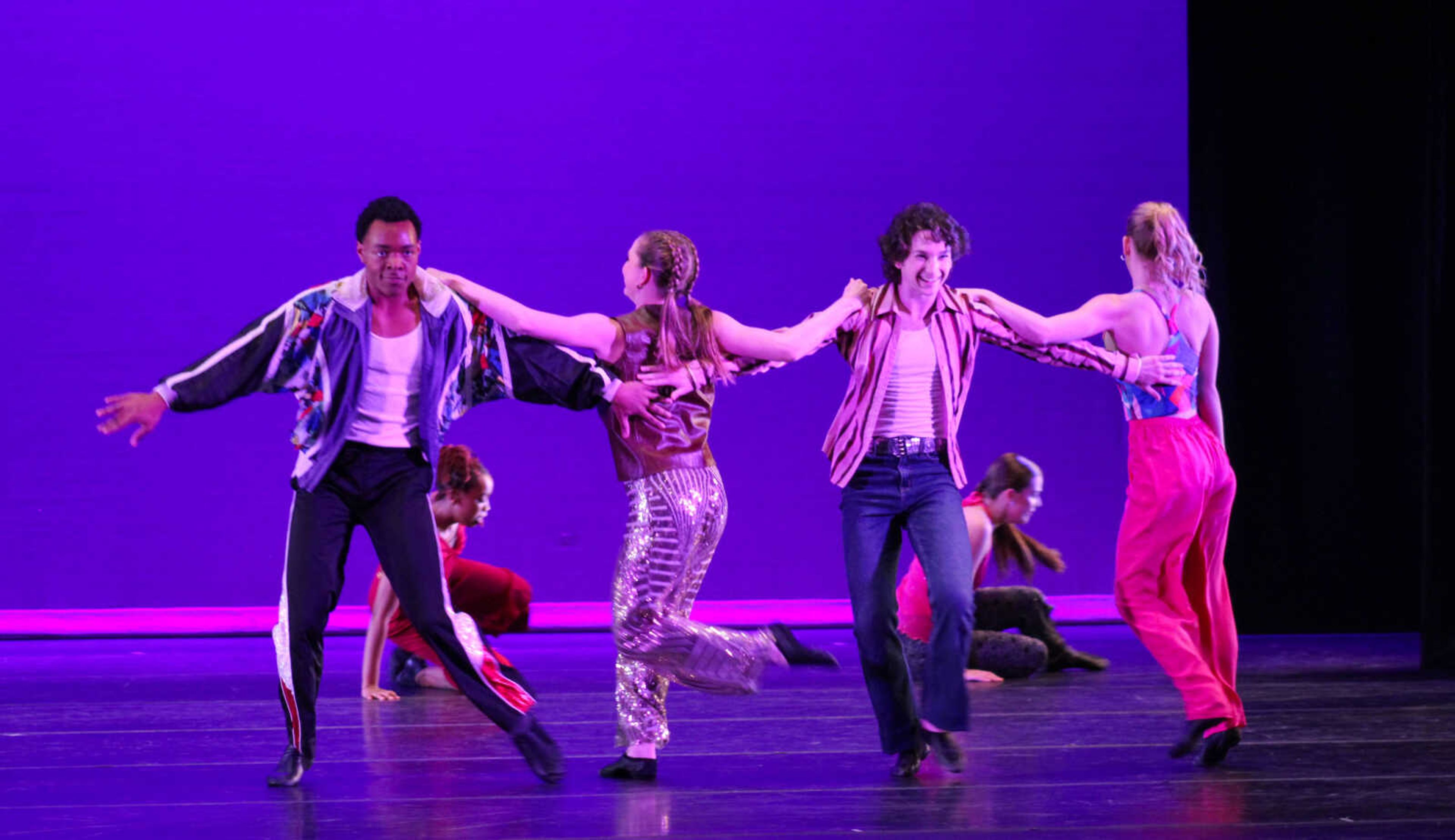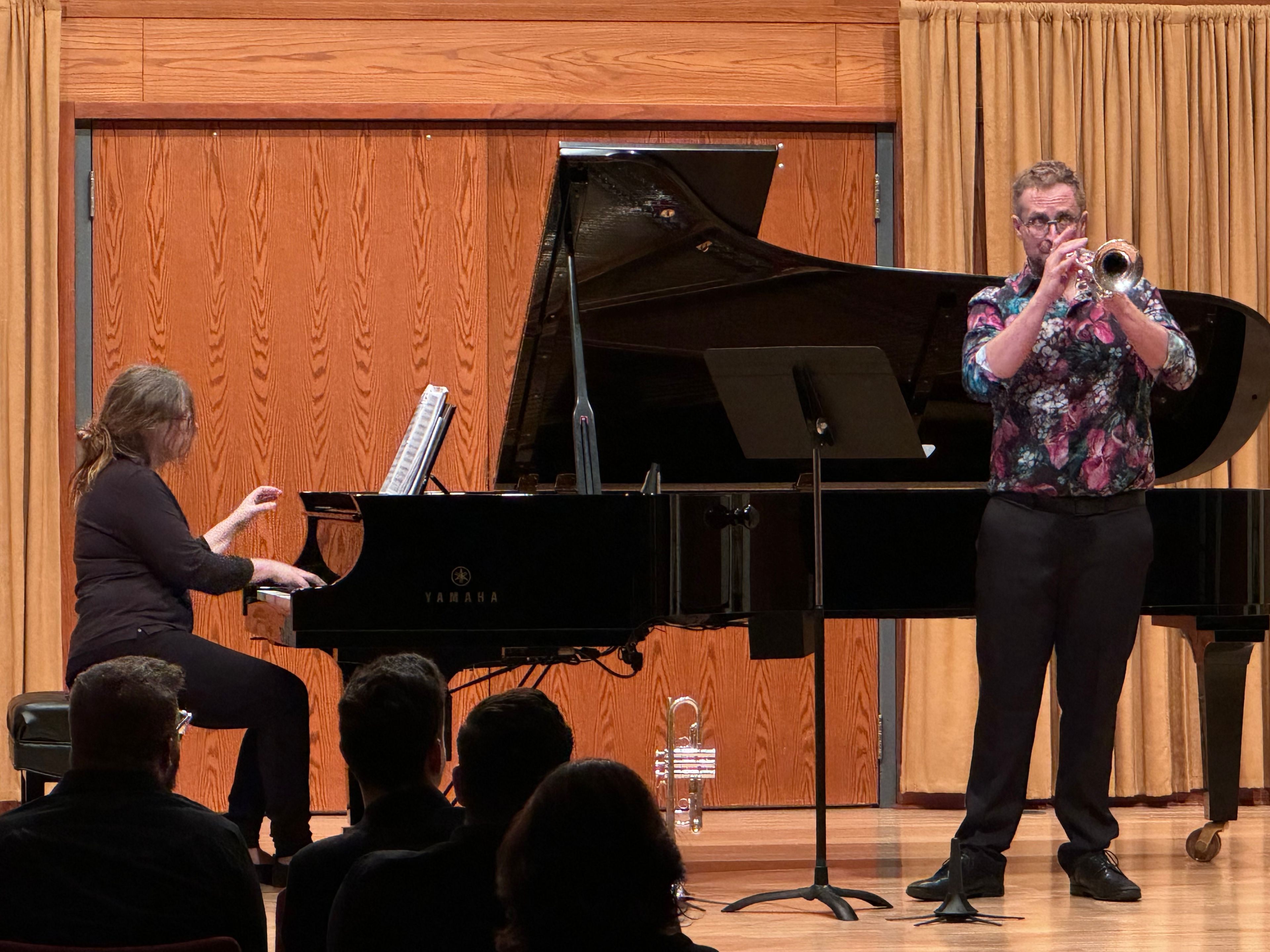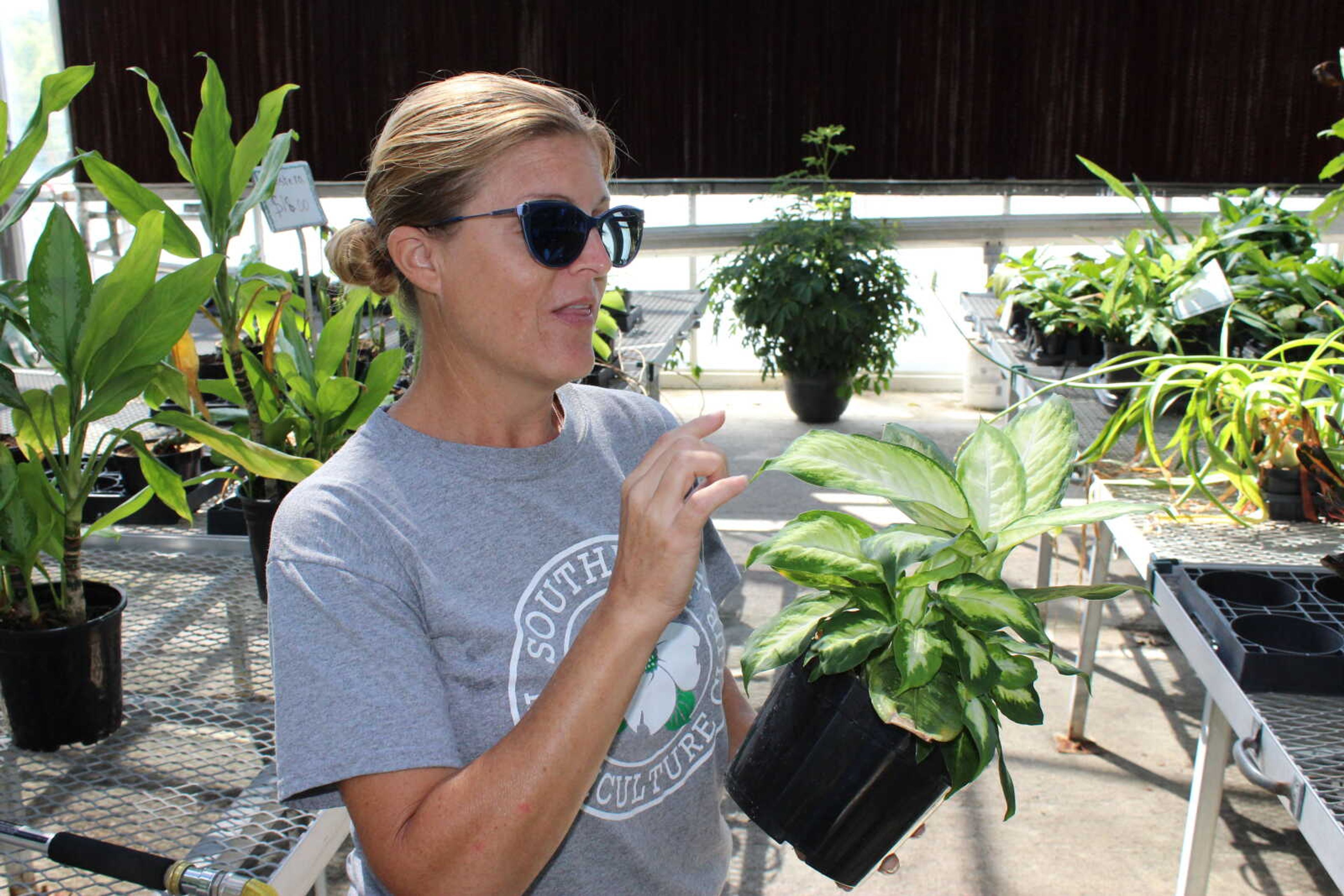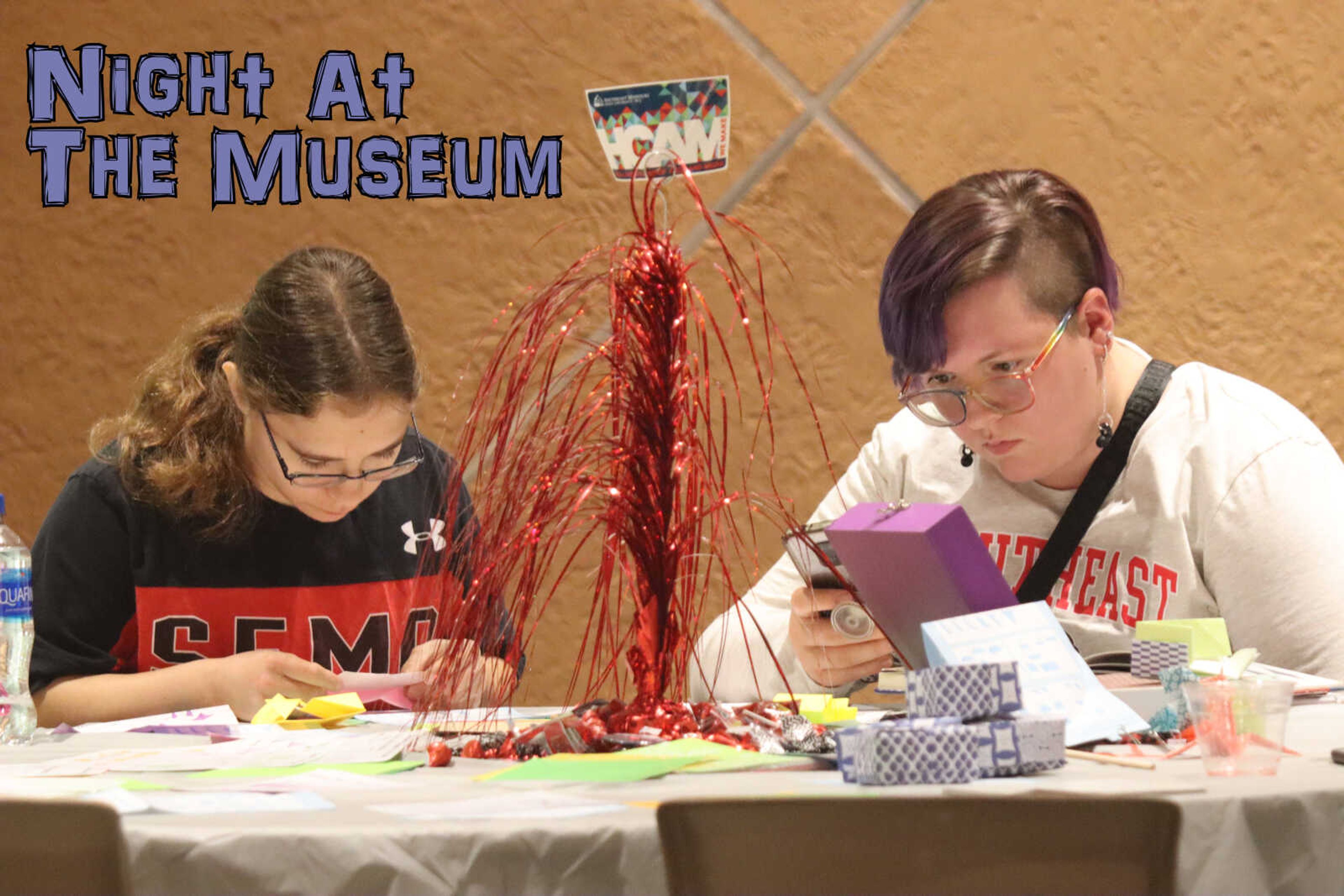Honey bees are soon to become extinct. The Southeast Sustainability Club hosted an event for students to learn the harm that would be done to humans and agricultural life if bees, who are endangered, were to become extinct. These include a lack of food and the destruction of Earth’s ecosystem.
Students gathered in the Rhodes Hall of Science on Wednesday evening to communicate with sustainability experts about how to live a better life without damaging life at the club’s first meeting of the year.
The students also painted flower pots to enhance and beautify the Rhodes Garden creating more plants to pollinate.
President of the Southeast Sustainability Club Carla Ketcherside said she notices a difference in the number of flying insects around. She said this is due to the lack of inorganic chemical pesticides being used and a solution would be to plant more plants which help the bees.
“There will be native perennials planted in the flower pots students are painting,” Ketcherside said. “Bees are struggling right now, so giving them more places to pollinate can help their supplies grow and give them more food and resources to thrive on.”
The Sustainability Club recently changed its name from the Environmental Association Club to the Sustainability Club in order to be more inclusive to other majors across campus, rather than only science, technology, engineering and math (STEM) majors.
The club recently began a recycling program started by the dean of students. Through this initiative, they have placed plastic, aluminum and paper recycling bins throughout the STEM buildings.
Director of environmental science and advisor of the Sustainability Club John Kraemer takes the recycling each month to be properly disposed of. Kraemer hopes recycling bins can be placed in all buildings on campus by the end of the year.
“The goal of this club is to gather more people from around the campus who have an interest in environmental issues, sustainability issues, wildlife, anything that has to do with the environment, and draw them together for a common goal,” Kraemer said. “We want to make sure there will be resources available for the next generations coming.”
As more people became members of the club while painting their flower pots, the executive board explained the previous year’s events and gauged interest for future events. These future events include trash pick-ups, stream cleans and campus-wide talks with the Missouri Department of Conservation.
Hannah Edwards is a new sustainability club member. She came with her friends to the first meeting due to their love for bees. Edwards said she lives a sustainable life and wishes to share her methods with others.
“I am a big fan of bees because they are very important to the environment,” Edwards said. “I try to be sustainable by composting, thrifting clothes and growing a lot of plants.”
The second meeting of the year for the newly-named Sustainability Club will be the week of September 28. Email jkraemer@semo.edu for specifics.
For more information on the Southeast Sustainability Club and other environmental events, visit their website.
